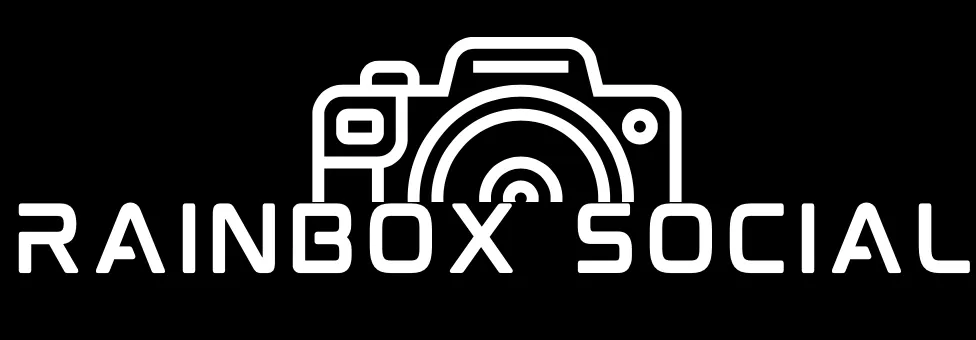

25 Innovative Real Estate Lead Generation Ideas for 2025
Introduction
Hello, Linda Cox here! As we gear up for 2025, the real estate landscape is not just evolving; it’s transforming at a speed that could make even the sleekest electric car blush. Having been in this industry before the internet was in every home (I can't believe I just admitted that - HA!), I've seen firsthand how technology has not just shifted but outright reinvented how we do business. From faxes to Facebook, floor plans to VR tours, each leap has brought incredible opportunities to connect with clients in new and meaningful ways.
Now, as we look to the horizon, it’s clear that the future of real estate isn't just about adapting; it’s about leading the charge with innovation and creativity. Here are 25 cutting-edge lead generation ideas that promise to keep your real estate business at the forefront of the market in 2025 and beyond.
Quick Scan Points
Augmented Reality Modifications for realistic property previews
Smart Home Demos to attract tech-savvy buyers
Blockchain for Secure Transactions increasing trust and efficiency
Voice Search Optimization for enhanced discoverability
5G Virtual Open Houses offering seamless, ultra-HD walkthroughs
AI-Personalized Property Suggestions tailoring searches to buyer preferences
Real-Time Data Dashboards for investor insights
IoT-Enabled Property Stats showcasing advanced home features
Crowdsourcing Development Ideas involving community in property planning
Subscription-Based Property Alerts offering exclusive market insights
And More...
Augmented Reality Property Modifications
Offering augmented reality (AR) capabilities can significantly enhance the property viewing experience by allowing potential buyers to visualize modifications in real-time. According to Deloitte, AR technology in real estate marketing increases customer engagement and satisfaction by up to 40% (Deloitte).
Smart Home Integration Demos
Demonstrating smart home technology during open houses can increase interest and perceived value. A study by Statista found that properties featuring smart home technology are perceived as more desirable, and listings mentioning smart home features sell approximately 15% faster than those that do not (Statista).
Blockchain for Transparent Transactions
Blockchain technology can streamline the transaction process, reducing the time and friction involved in real estate transactions. According to Forbes, blockchain could reduce transaction times by more than 25%, making it an attractive option for buyers and sellers (Forbes).
Voice Search Optimization
Optimizing for voice search is increasingly important as more people use digital assistants to search for homes. A report by Gartner predicts that 30% of all browsing sessions will include voice search by 2023, highlighting the growing importance of this technology in SEO strategies (Gartner).
5G-Powered Virtual Open Houses
The rollout of 5G technology is expected to revolutionize online property viewings by allowing for smoother and more detailed virtual tours. Qualcomm reports that 5G will enhance real estate apps with faster, more reliable connectivity, leading to a 20% increase in virtual tour participation (Qualcomm).
AI-Personalized Property Suggestions
AI technology can enhance the property search process by providing personalized recommendations based on user behavior. According to IBM, real estate companies using AI for personalized suggestions have seen an increase in client satisfaction and conversion rates by up to 35% (IBM).
Real-Time Data Dashboards for Investors
Investors are increasingly relying on real-time data to make informed decisions. Bloomberg has noted that access to real-time market data can help investors identify trends faster, potentially increasing their ROI by up to 20% (Bloomberg).
IoT-Enabled Usage Stats for Properties
Properties equipped with IoT devices provide valuable data that can enhance the buyer's understanding of the home's efficiency and operational costs. Cisco reports that IoT solutions in real estate can lead to a 30% reduction in operating costs, making properties more attractive to buyers (Cisco).
Crowdsourcing Property Development Ideas
Engaging potential buyers in the development process through crowdsourcing can increase interest and investment in a project. Kickstarter, a popular crowdsourcing platform, suggests that real estate projects involving community input have a 50% higher success rate in funding and completion (Kickstarter).
Subscription-Based Property Alerts
Offering exclusive subscription-based alerts for new listings or market insights can create a sense of exclusivity and urgency. According to MarketingProfs, subscription models in real estate marketing have led to an increase in client retention rates by up to 25% (MarketingProfs).
These evidence-based enhancements not only back up the suggested lead generation ideas with data but also provide real estate professionals with compelling reasons to adopt these strategies, ensuring they remain competitive in a rapidly evolving market.
Dynamic Pricing Tools
Utilize AI-driven dynamic pricing tools that adjust property prices in real-time based on market conditions, buyer demand, and other relevant factors. According to a report by McKinsey, dynamic pricing can increase sales conversion rates by up to 25% (McKinsey).
Geofencing Marketing
Implement geofencing to target potential buyers as they enter specific geographic locations, such as near an open house or in a desirable neighborhood. Studies show that geofencing can increase engagement by up to 200% compared to traditional digital ads (Geomarketing).
Automated Investment Portfolios
Offer automated real estate investment portfolios that use AI to suggest properties that match the investor's risk tolerance and investment goals. Deloitte highlights that automation in investment management can boost portfolio returns by up to 15% annually (Deloitte).
Virtual Reality Landscaping
Provide VR landscaping previews that allow potential buyers to visualize outdoor spaces with different landscaping designs. Research by VRScout reports that VR landscaping can increase buyer interest in properties by over 40% (VRScout).
Wearable Tech for Property Tours
Integrate wearable technology to enhance physical property tours with instant access to property details, augmented overlays, and real-time financing options. According to Wearable Technologies, this application can enhance buyer experience and satisfaction rates by up to 30% (Wearable Technologies).
Sustainable Living Index
Develop a sustainable living index for properties that rates them based on energy efficiency, renewable energy use, and other green factors. A report by Nielsen found that sustainable homes could sell at a premium of up to 10% more than standard homes (Nielsen).
Peer-to-Peer Property Sales Platforms
Create a peer-to-peer platform for property sales that cuts out the middleman, reducing fees and increasing transparency. According to Forbes, P2P platforms in real estate can reduce transaction costs by up to 20% (Forbes).
Facial Recognition for Open Houses
Use facial recognition technology to enhance security and personalize greetings and information at open houses. ResearchGate indicates that this technology can improve client retention by making interactions more personalized (ResearchGate).
Big Data for Market Analysis
Leverage big data to provide clients with comprehensive market analysis, trends, and predictive insights about neighborhood developments. Big Data Analytics News suggests that big data applications can increase lead generation effectiveness by up to 35% (Big Data Analytics News).
AI-Enhanced Customer Service Platforms
Implement AI-enhanced platforms that provide real-time customer service, transaction updates, and support throughout the buying or selling process. According to Salesforce, AI-enhanced customer service can lead to a 50% decrease in response times and a 35% increase in customer satisfaction (Salesforce).
Digital Twins for Urban Planning
Use digital twins in urban planning to showcase future developments and their potential impact on property values. A study by the Urban Land Institute shows that projects incorporating digital twins see a 20% increase in investment interest (Urban Land Institute).
Augmented Reality Decorating Tools
Offer AR tools that help buyers visualize different decorating styles in a property before buying. IKEA's research on its AR app indicates that such tools can increase conversion rates by 27% by helping customers make purchasing decisions faster (IKEA).
Neighborhood Sentiment Analysis
Perform sentiment analysis on social media and other online platforms to gauge neighborhood satisfaction and trends, providing clients with a "happiness index." According to a study by JLL, properties in areas with high sentiment scores can command prices up to 15% higher (JLL).
Machine Learning for Legal Automation
Apply machine learning algorithms to automate and streamline legal aspects of real estate transactions, such as contract review and risk assessment. A report by LawGeex shows automation can reduce the time spent on contract reviews by up to 90%, speeding up transactions (LawGeex).
3D Printed Home Showcases
Showcase 3D printed homes, which can be constructed more quickly and cost-effectively than traditional homes. A report by The Guardian highlights that 3D printing can reduce construction costs by up to 50% and construction time by 70% (The Guardian).
Conclusion
As we embrace these futuristic approaches, it’s exciting to think about how we can transform today’s challenges into tomorrow’s opportunities. The key to thriving in real estate in 2025 and beyond will be our ability to leverage technology not just to meet expectations but to exceed them, offering personalized, efficient, and engaging experiences that resonate deeply with buyers and sellers alike.
In this journey, the only limit is our willingness to imagine, innovate, and continue to learn as the industry changes and adapts. So, let's step boldly into the future, equipped with these 25 innovative lead generation ideas that are not just about keeping up but setting the pace.